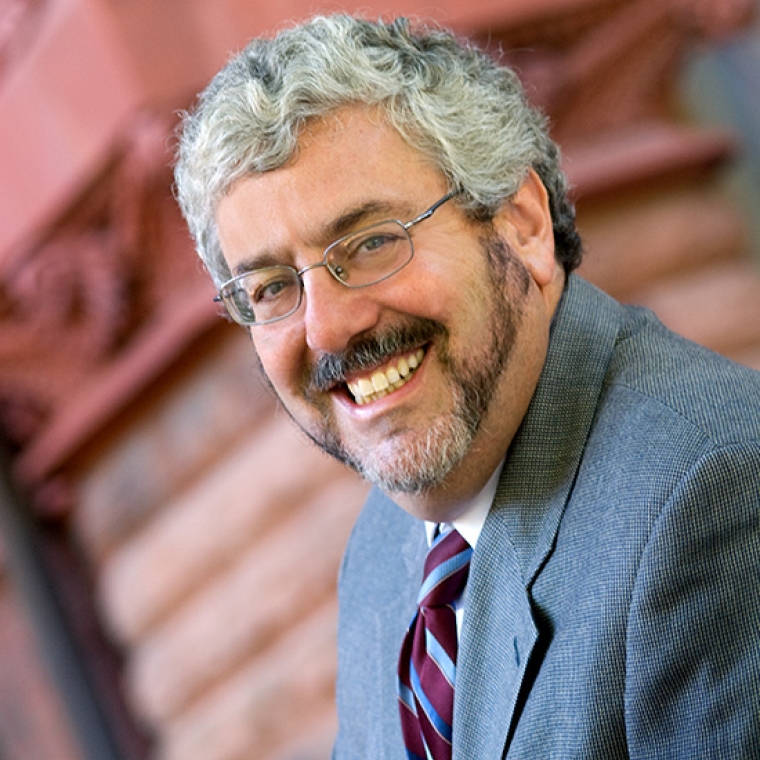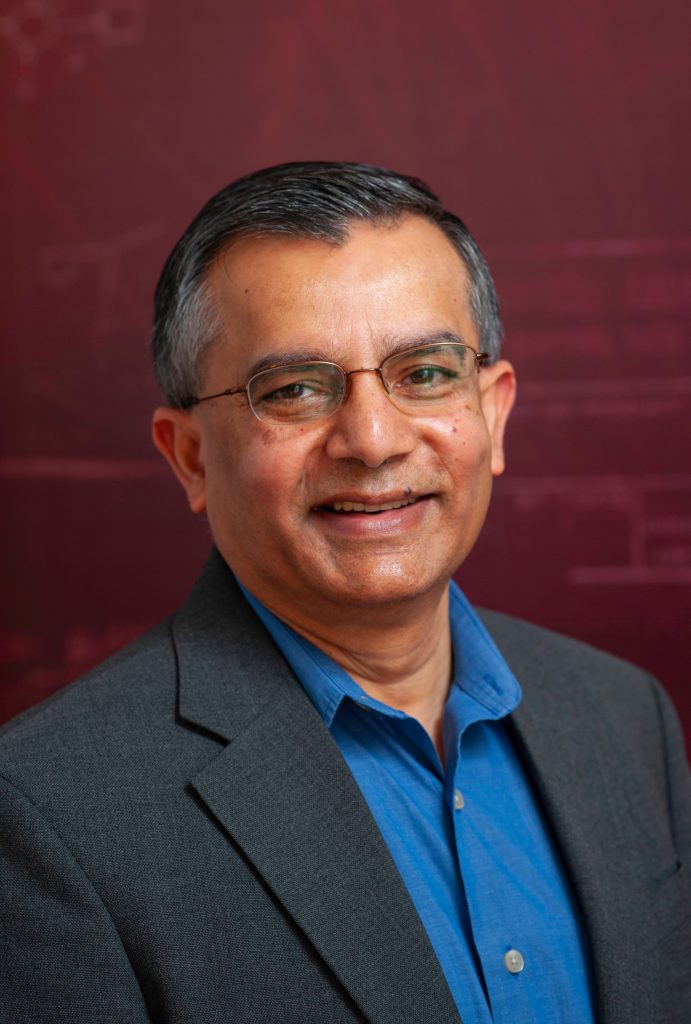Keynote Speakers
We are excited to host keynote speaker sessions from a variety of speakers at this conference. These presentations will take place May 9 – May 10, 2025
May 9: 9:45 AM-12:00 PM
Paul M. Torrens

Pedestrian AI
The boundaries between real-world urban science and what-if computational counterparts have routinely fallen into and out of alignment over time. Advances in technology and improved insight into the rhythms and motifs of city life routinely draw both together or set them at odds. Recently, however, there has been a profound shift toward convergence of real and synthetic urban science. This confluence is being hastened by new synergies between sensors, modeling, and simulation, each drawn together as forms of artificial intelligence. These ties are nascent and perhaps brittle, but point toward promising pathways for analytical and experimental urban science on the near-term horizon. In this talk, I will outline an effort to develop agent-based AI designed for interoperability with high-resolutions of real-world urban phenomena. My demonstrations of the concept will focus on an attempt to build an AI for pedestrian behavior on urban streetscapes, one that is high in fidelity relative to our best available conceptual knowledge of hyper-local urban context, that is robustly valid relative to new forms of validation that can come from wearable sensors and deep learning, and that is flexibly verisimilar in its ability to evoke interactive experiences from users. This triple of fidelity, validity, and verisimilitude, arguably leads to new forms of individually-focused urban science. The topic of individuality in city phenomena has broader currency in parallel debates in human-centered science, particularly concerning the role of embodiment and encounter as signatures of an urban science that could be studied at a very micro-scale.
Paul M. Torrens is a Professor in the Department of Computer Science and Engineering at the Tandon School of Engineering in New York University, where he is also faculty in the Center for Urban Science + Progress. Prior to joining NYU, Paul was the founding Director of the Center for Geospatial Information Science at the University of Maryland, College Park. From 2023-2025, Paul was a Program Director for Engineering Research Centers (ERC) at the National Science Foundation. He is a prior recipient of the Presidential Early Career Award for Scientists and Engineers (PECASE) for his work in modeling human behavior. Paul received a Ph.D. from the Centre for Advanced Spatial Analysis at University College London in 2004.
For more information: https://engineering.nyu.edu/faculty/paul-torrens
Ed Manley

Urban space and behaviour
Urban space shapes human behaviour in ways still not fully understood, with potential implications for how we plan and design future cities. In this talk I will present several recent projects from the Mobility Science Lab at University of Leeds that seek to deepen our understanding of this relationship. These studies include assessing the effect of street design on speeding behaviour, social mixing on transportation networks, co-location across spatial scales, and new transport mode uptake. Each of the studies build on advances in new mobility data and computational methods, allowing us to gain an increasingly granular understanding of spatial behaviour in cities. I will also discuss how these findings, and others, produce new questions around whether conventional GIS representations are fit for enhancing our understanding of spatial behaviour.
Ed Manley is a Professor of Urban Analytics in the School of Geography, and Deputy Director of HASP. In addition, he is the Pro Dean for Research and Innovation in the Faculty of Environment, University of Leeds, and an Honorary Professor at University College London (UCL). In 2022, Ed was awarded the Phillip Leverhulme Prize for Geography in 2022. Ed’s current research projects include devising new ways to improve transport sustainability (INFUZE), understanding movement through hospitals and its role in spreading infection (Digital Health Hub for AMR), curating research data on human mobility (HASP), and modelling how spatial cognition influences movement choices (Cognitive and Social Spaces). Ed’s research demonstrates how mobility and interaction shape social systems, and HASP will play an important role in supporting this interdisciplinary perspective.
For more information: mobscilab.com
View the keynote speech recording here.
Federico Cugurullo

Urbanistic Perspectives on AI
Urban artificial intelligence (AI) is rapidly becoming a prominent feature of the shape and governance of the 21st century city. On the one hand, its emergence is linked to well-known practices of smart urbanism. On the other hand, however, urban AI manifests capabilities that goes well beyond the smart city, both empirically and theoretically. This presentation focuses on the most innovative and radical aspects of urban AI, and compares traditional smart tech with novel AI solutions that are emerging in the governance of contemporary cities. Upon examining the innovation that distinguishes AI from smart in urban governance, this presentation provides empirical evidence of a post-smart trajectory for cities in which new material and decision-making capabilities are being assembled through multiple AIs.Ultimately, the aim of this presentation is to shed light on the new challenges that the city is facing in the age of AI, offering conceptual and analytical tools to understand the urbanity of AI and its impact on present and future cities.
Federico Cugurullo is Associate Professor in Smart and Sustainable Urbanism at Trinity College Dublin. His research is positioned at the intersection of urban geography, political philosophy and experimental urbanism, and explores how artificial intelligence (AI) is influencing urban governance and planning, thereby impacting the sustainability of cities.Empirically, he has done extensive research in the Middle East and Southeast Asia on many experimental cities including Masdar City, Hong Kong and The Line. Theoretically, Federico is interested in unpacking the notion of AI from an urbanistic perspective, and in fleshing out the conceptual implications of AI-mediated urban spaces, such as the “end of the city” hypothesis introduced in his monograph Frankenstein Urbanism (Routledge 2021). He is a co-editor of Artificial Intelligence and the City: Urbanistic Perspectives on AI (Routledge 2023).
For more info: https://www.tcd.ie/research/profiles/?profile=cugurulf
View the keynote speech recording here.
May 9: 8:00 PM-8:45 PM
Chris Pettit

The role of AI to support City Planning
With the recent rise of generative AI, also known as Large Language Models (LLMs) we are witnessing the next wave of technology and modelling which promises to revolutionise how we plan our cities. However, planning as a discipline has been plagued with promises of advanced technology to better plan and in-fact optimise our cities. Large-scale urban modelling efforts date back to the 1950-1960s. This was followed in the 1970-80s by urban modelling and visualisation powered through geographical information systems (GIS). In the 1990s-2000s more customised tools known as Planning Support Systems (PSS) were being developed and applied to support strategic planning. In the 2010s we saw the rise of urban digital twins with the promise interactive 3D real-time digital cities and simulations. Yet with all these remarkable technological innovations the ability of these tools to improve the efficiency and more importantly the effectiveness of city planning remains a challenge.
Since the launch of ChatGPT in 2022 we have seen a democratisation of AI. Accessing and interacting with such LLMs can be as simple as using an Internet search browser. The possibilities of using such friendly, powerful technology offers exciting opportunities to revolutionise city planning through supporting many tasks from strategic to statutory planning. Yet, we need to ensure AI is trustworthy, it gives accurate and transparent results which are used ethically. In this presentation I will discuss several projects underway at the City Futures Research Centre – UNSW, which are critically thinking and applying AI to support better city planning. These projects include: (i) AI, cities and development assessment, which is focused on the role of trustworthy AI solutions specially for improving the planning a process, (ii) MapAI a spatial reasoning platform which chat enables geospatial analysis, (iii) Urban Copilot, which is developing a suite of multi-scale generative AI solutions from precinct, property to design. I will conclude the presentation with reflections on the opportunities and challenges facing city planners in harnessing the power of AI solutions.
Chris Pettit is Scientia Professor and Director of the City Futures Research Centre UNSW –an internationally renowned institute which has been conducting scholarly applied public interest research on our cities since 2005. Prof Pettit is the Chair of the Board of Directors for CUPUM (Computational Urban Planning and Urban Management) the premier international academic forum (30 years old) at the intersection of digital technologies, data science, urban planning and city shaping. He is co-founder of two start up companies, Value Australia and MapAI and global advisor to PGIM’s RealAssetX Lab. He is a member of the Planning Institute of Australia’s National Plantech Advisory Committee, the Federal Government of Australia’s Urban Policy Network and the Australian Urban Research Infrastructure Network (AURIN) Scientific Committee.
Chris is the Director of the City Futures Research Centre in Sydney. For more info: https://shorturl.at/HswR6
View the keynote speech recording here.
May 10: 8:30 AM-10:45 AM
John D. Landis

AI and the Future of American City Planning
Ready or not, generative artificial intelligence (GenAI) is coming to local planning departments. Will those departments “lead” (use GenAI to assist with as many core tasks as feasible), “follow”(wait for others to develop key applications), or “get out of the way” (leave the decision to individual planners)? This presentation will explore the potential and suitability to task of current and future GenAI models to improve the efficacy, transparency, and fairness of local planning tasks, including conducting development reviews, undertaking community-level research, developing community profiles, forecasts and scenarios, creating local comprehensive and strategic plans, and initiative innovative projects and programs. It will explore the implications of GenAI for the planning job market and identify steps academic planning departments can undertake to better prepare their students for an AI augmented future, and conclude with a five-step agenda to better harness the power of GenAI to improve the practice and conduct of local planning throughout the U.S.
John D. Landis is Emeritus Professor of City Planning in the Weitzman School of Design at the University of Pennsylvania. He previously held academic appointments at the University of California-Berkeley (1987-2007), the Georgia Institute of Technology (1985-86), and the University of Rhode Island (1983-84). The developer of the California Urban Futures series of spatially explicit urban growth models in the 1990s, Landis’s more recent work has focused on processes of neighborhood economic and demographic change and on how planners can do a better job connecting interventions to successful urban outcomes. His most recent book, Megaprojects for Megacities (Edward-Elgar, 2022), draws on a series of global case studies to understand the determinants of successful transportation, urban development, and environmental megaprojects.
For more information: https://www.design.upenn.edu/people/john-d-landis
View the keynote speech recording here.
Shashi Shekhar

What is special about Geo-AI and Spatial data science?
Spatial data and methods have a rich history of transforming cities and communities. For example, John Snow‘s 1854 London Cholera map spurred creation of urban sewer systems to protect drinking water. Today, Geospatial data and mapping is among Technology that cities use the most for numerous strategic (e.g., long-term planning, land-use, identify underserved areas), tactical (e.g., zoning, property tax, site selection, asset tracking) and operational (e.g., E-911, situation awareness) use cases.
Future opportunities for are even more compelling with the rise of spatial big data (e.g., trajectories, remote-sensing) and Geo-AI (e.g., geo-imagery analysis automation) for making previously unavailable maps, answering trail-blazing geo-content based queries, and understanding spatiotemporal patterns of our lives, etc. Applications span from apps for navigation, ride-sharing, and delivery to climate change, public health, and smart cities.
However, one-size-fit-all machine learning and AI performs poorly (e.g., salt-n-pepper noise, inaccuracy) due to spatial autocorrelation and variability, which violate the common i.i.d. assumption (i.e. data samples are generated independently and from identical distribution). Furthermore, high cost of spurious patterns requires guardrails such as noise tolerance, and modeling of spatial concepts and implicit relationships (e.g., distance, inside). In addition, methods discretizing continuous space face the modifiable areal unit problem (e.g., gerrymandering).
Thus, the talk suggests spatial data science approaches and describes methods for spatial classification and prediction (e.g., spatial auto-regression, spatial decision trees, spatial variability aware neural networks) along with techniques for discovering patterns such as noise-robust hotspots (e.g., SaTScan, linear, arbitrary shapes), interactions (e.g., co-locations, tele-connections ), spatial outliers, and their spatio-temporal counterparts (e.g.,cascade , mixed-drove co-occurrence). It concludes by calling for inclusion of spatial perspectives in data science courses and curricula.
Shashi Shekhar is a leading scholar of spatial computing, spatial data science and Geographic Information Systems (GIS). Contributions include scalable algorithms for eco-routing, evacuation route planning and spatial pattern (e.g., colocation) mining, along with an Encyclopedia of GIS, a Spatial Databases textbook, and a spatial computing book for professionals. Shashi is a McKnight Distinguished University Professor, a Distinguished University Teaching Professor, and an ADC Chair at the University of Minnesota. Currently, he is serving as the Director of an National AI Research Institute, a co-Editor-in-Chief of the Geo-Informatica journal (Springer). Earlier, he served as the P.I. for a NSF smart and connected communities project, the President of the University Consortium for GIS (UCGIS) and a member of multiple National Academies’ committees. Recognitions include IEEE-CS Technical Achievement Award, UCGIS Education Award, IEEE Fellow and AAAS Fellow.
For more info: https://shorturl.at/MX0d7
View the keynote speech recording here.
View Shekhar’s presentation slides.
Andrew Crooks

Artificial intelligence and Urban Analytics: Opportunities and Challenges
Urban areas now provide homes for more people than ever before, and with more and more people living in cities achieving sustainable cities is crucial for the betterment of all. Coinciding with the growth of the world’s population is the growth of artificial intelligence (AI) is which is becoming pervasive in all aspects of our daily lives. In this talk I will discuss how AI is offering us new opportunities when it come studying cities, specifically, through the lens of urban analytics. Urban analytics can be broadly defined a set of methods to explore, understand and predict the properties of cities. Through a series of examples, I will highlight how AI especially through the use of multimodal large language models (LLMs) is offering accessible methods for geographic information extraction and modeling of cities. I will showcase how AI can improve the granularity of urban data collection while at the same time provides more advanced GIS tools to practitioners in a more accessible and user-friendly way. However, AI alone is not the panacea when it comes to archiving urban sustainability and many challenges exist and the talk with conclude with these.
Andrew Crooks is Professor within the Department of Geography at the University at Buffalo (UB). He holds a PhD in Geography from University College London and prior to joining UB he was an Assistant and Associate Professor of Computational Social Science at George Mason University. Andrew’s area of expertise relates to exploring, understanding cities through the lens of urban analytics. For Andrew to carry out his research, he utilizes methods from geographical information science (GIS), social network analysis (SNA) and agent-based modeling (ABM). He has published widely in these areas and is the lead author of the book “Agent-Based Modelling and Geographical Information Systems: A Practical Primer”. His research has been funded by numerous US government agencies. Andrew is co-editor of Environment and Planning B: Urban Analytics and City Science and serves on several leading GIS editorial boards.
For more information: www.gisagents.org.
View the keynote speech recording here.
May 10: 8:00 PM-8:45 PM
Tan Yigitcanlar

Responsible Urban Innovation with AI Systems for Local Governments
As cities increasingly turn to AI to address complex urban challenges, the importance of responsible innovation becomes paramount—particularly for local governments striving to balance technological advancement with public trust, equity, and sustainability. This presentation explores the concept of responsible urban innovation through the lens of AI adoption in local government contexts. Drawing from emerging global practices, recent empirical research, and real-world case studies, it highlights how AI systems can be leveraged to enhance urban governance, planning, service delivery, and community engagement while addressing ethical, legal, and social implications. The presentation will share key findings from an international comparative study involving five countries—Australia, the United States, Spain, Hong Kong, and Saudi Arabia—and twelve local government industry partners. Through in-depth case studies across these diverse governance and urban innovation contexts, the research investigates how local governments are engaging with AI technologies, the challenges they encounter, and the strategies they adopt to ensure responsible implementation. The study offers cross-cultural insights into the institutional, regulatory, and socio-political factors shaping AI use in local governance and identifies emerging best practices for aligning AI innovation with public values. The presentation provides practitioners, policymakers, and researchers with practical guidance on fostering responsible, inclusive, and sustainable urban AI adoption in local government settings globally.
Tan Yigitcanlar is a leading Australian researcher in urban studies, technology, and planning. He is a Professor at QUT’s School of Architecture and Built Environment and leads the QUT Urban AI Hub, City 4.0 Lab, Smart City Research Group, and the Australia-Brazil Smart City Network. A member of the ARC College of Experts, he has worked across Australia, Brazil, Finland, Japan, and Turkey at the university sector for over 30 years. Tan’s research focuses on smart and sustainable urbanisation, with over 330 journal articles, 32 books, and about 30,000 citations (h-index: 98). He has advised governments, corporations, and NGOs globally, delivered 80+ keynotes, and held senior editorial roles in 12 journals. Recognised as Australia’s top researcher in urban planning, he ranks in the global top10 and among the top 1% of scientists worldwide.
For more info: https://www.qut.edu.au/about/our-people/academic-profiles/tan.yigitcanlar